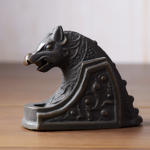Art Appraisal Cost: A Guide to Valuing Your Masterpieces
Countless masterpieces of art over the centuries have captured the essence of human creativity and emotion. They have been a source of inspiration and fascinated art enthusiasts and collectors over the years. People who admire antique art also collect masterpieces and one of the crucial aspects of owning such art is understanding its value.
Antique art appraisal is what comes into play to determine the value of an art piece. Professionals carry out appraisals to assess the worth of artworks. Apart from determining the value of art, it is also important to be aware of art appraisal cost and the many factors that influence it.
The Importance of an Art Appraisal
Why art appraisal? Because, an art appraisal serves several vital purposes, including:
1. Asset Valuation: Artwork can be a valuable asset, and knowing its worth is essential for insurance, estate planning, or resale purposes.
2. Authentication: Art appraisal can help authenticate the provenance and legitimacy of a piece, especially in the case of potentially valuable antiques or pieces with historical significance.
3. Taxation: For those looking to donate art to museums or institutions, a professional appraisal is often required for tax deductions.
4. Informed Decision-Making: Whether you’re buying or selling, knowing the accurate value of an artwork is crucial for making informed decisions and negotiating fair prices.
Let’s explore the intriguing world of art and antique appraisal costs and also shed light on some of the factors that influence them.
Factors Influencing Art Appraisal Cost
Art appraisal costs can vary significantly depending on a variety of factors. Here are some of the key elements that usually influence the final fee:
1. Type of Artwork
What type of artwork is being appraised plays a significant role in determining the appraisal cost. Appraising a simple painting may be less expensive than assessing a complex sculpture. The same goes for rare antique furniture or a collection of valuable coins. Most times the intricacy and nature of the piece can require more time and expertise, which can result in higher appraisal fees.
2. Appraiser’s Experience and Credentials
Experienced and well-credentialed appraisers typically charge higher fees. Also they are few in number. Accredited appraisers, such as those certified by the Appraisers Association of America or the International Society of Appraisers, tend to command higher rates. This is due to their specialized knowledge and reputation.
3. Research and Documentation
Apart from studying the art piece, appraisers also invest time and effort into researching the history, provenance, and market conditions surrounding an artwork. Complex research and comprehensive documentation can increase the cost of the appraisal.
4. Geographic Location
The cost of art appraisal can also vary depending on your geographical location. Major cities with a thriving art market, such as New York or London, tend to have higher appraisal fees than smaller towns or regions with less demand for art appraisal services.
5. Purpose of Appraisal
The purpose of the evaluation can also impact the art appraisal cost. Appraisals for insurance purposes, estate planning, or tax deductions may require a more detailed and rigorous assessment, which can result in higher fees compared to a simple valuation for personal knowledge.
6. Urgency
If you need a rushed appraisal, expect to pay a premium. Appraisers may charge more for expedited services to accommodate tight deadlines.
Choosing the Right Appraiser
Choosing a qualified and reputable appraiser is the most crucial if you are expecting an accurate antique art appraisal. Here are some tips for finding the right professional:
Credentials: Look for appraisers who are accredited by recognized organizations, such as the Appraisers Association of America or the International Society of Appraisers.
Experience: Inquire about an appraiser’s experience and expertise. They should have been involved in appraising the type of artwork or antiques you possess.
References: Ask for references or reviews from previous clients to gauge an appraiser’s reputation and reliability.
Transparent Fees: Choose an appraiser who provides clear and transparent information about their fees and the appraisal process.
Specialization: If you have a unique or specialized item, consider seeking an appraiser with expertise in that specific area and one who does not inflate the art appraisal cost. Experts from Appraisily can help and guide you with this.




